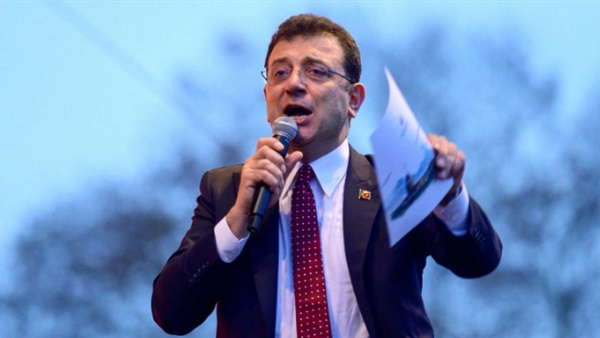President Erdogan’s decision to jail political rival Ekrem Imamoglu may backfire

Ekrem Imamoglu’s global profile has soared in the five days since he was banned from Turkish politics.
The mayor of Istanbul, a charismatic rising star in the opposition against President Erdogan, was convicted on Wednesday of insulting public officials. He was jailed for almost three years and banned from holding elected office.
His trial and conviction unfolded in a justice system that has been reshaped to the will of one man. Erdogan has ruled Turkey since 2003, first as prime minister and then president. He will stand again next year, with a generation coming of age knowing no other leader. Since the attempted coup of 2016 more than a third of judges and prosecutors have been sacked, replaced by loyalists. Higher courts and institutions offer little resistance against pressure from the palace.
“We are living in this small and tightening space, and it is becoming more difficult to reach justice and witness trials,” said Kemal Polat, Imamoglu’s lawyer. “We could not use rights that are granted to us under Turkish law. The sentence given was legally inexplicably harsh.”
The ruling strips the opposition of its brightest star. But it has also galvanised a fragile opposition coalition — the “table of six” parties including Imamoglu’s CHP — that had until now appeared lacklustre.
Together with party leaders from the table of six, Imamoglu spoke outside Istanbul city hall the night after his conviction.
“They say it is no problem for you to give your decision according to the national will. But if you vote in a different way, every type of pressure, of damage, begins,” he told the crowd, who chanted: “Rights, law, justice.”
The ruling has prompted an outpouring of international support. The US state department said it was “gravely concerned” by his conviction.
The indictment against him was issued in May 2021, two years after he won the Istanbul elections, dislodging Erdogan’s party from the city for the first time in 25 years.
Imamoglu’s “insult” was to call the members of the higher electoral board “fools” when, under political pressure, they cancelled the results of the first elections in March 2019, which he had won by a fine margin. The elections were rerun in June, with Imamoglu this time winning by a far bigger margin.
He has proved a capable, well-liked figurehead in Istanbul: on his watch, parks and public spaces have been revamped and the transport network is spreading. Meanwhile, central government has stripped powers and funding from the city since Imamoglu took office.
Istanbul is seen as Turkey’s political bellwether and is a perfect miniature of its complex society. Imamoglu has built a strong groundswell of local support, enthusiastic young crowds who turn out to see him when he opens a new library or ferry port. However, he is relatively inexperienced and it is unlikely that the opposition would have picked him as its candidate for the presidential elections in June, even before his conviction. But there is little doubt that he would have stood as a future candidate.
Erdogan knows that trajectory well. In 1994, aged 40, he became mayor of Istanbul. In 1999 he was also jailed and placed under a political ban. Prison proved more of a boost than a setback: Amnesty International lobbied for his release, and for conservative Turks he became an icon of religious and political freedom.
Imamoglu’s fight may now invigorate the opposition, just as Erdogan did when he was the underdog a generation ago.





